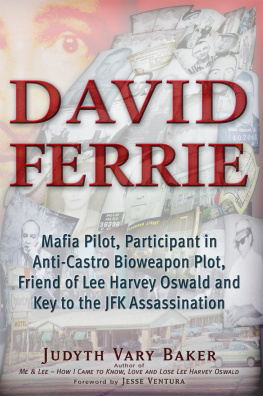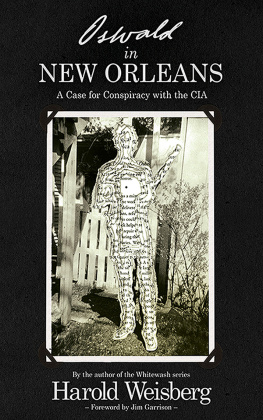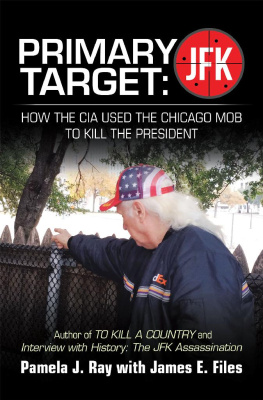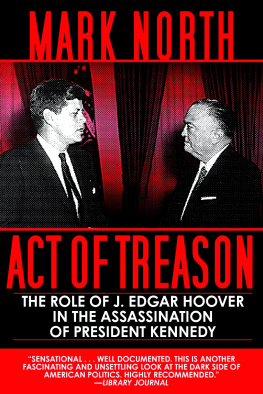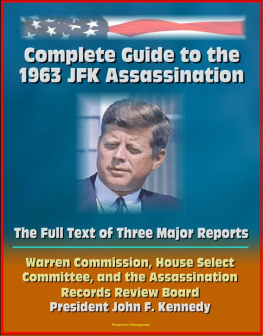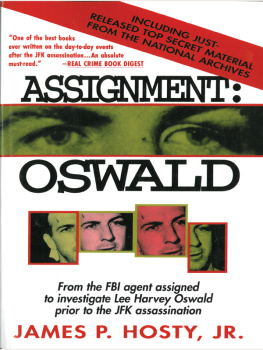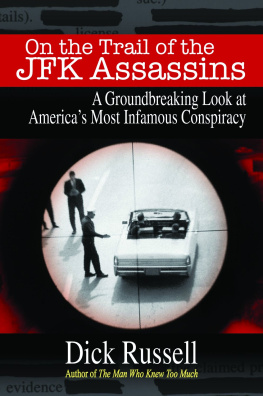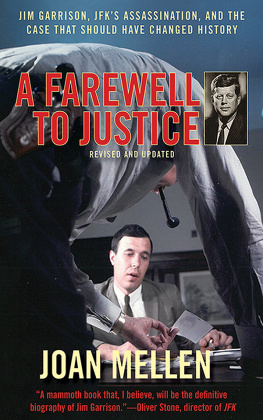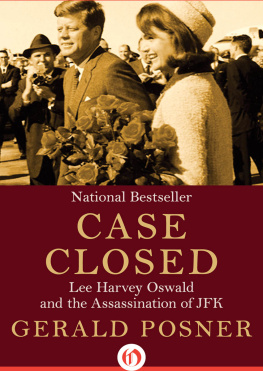For more than 40 years, a small band of self-anointed investigators have made a cottage industry out of critiquing the Warren Commission Report on the assassination of JFK and postulating elaborate theories associated with that tragedy. Kelin one of the second generation of critics and the founder of the JFK assassination Web magazine Fair Playpays homage to the first generation who, unlike craven mainstream historians, he says, refused to buckle under the most subversive lies ever told the American people. Kelin explores in detail the work of a parade of investigators, including prosecutor Jim Garrison (immortalized in Oliver Stones controversial film JFK); Rush to Judgment author Mark Lane; smalltown newspaper editor Penn Jones Jr. (who made a specialty of investigating the strange deaths of assassination witnesses over the course of several decades), and Whitewash author Harold Weisberg. If Vincent Bugliosi thought his mammoth Reclaiming History would put an end to this debate, Kelin is determined to prove him wrong.
Publishers Weekly


The Warren Commissions Hearings Before the Presidents Commission on the Assassination of President Kennedy.
Praise from a Future Generation: The Assassination of John F. Kennedy and the First Generation Critics of the Warren Report 2007 by Wings Press for John Kelin Ebook edition 2013 by Wings Press for John Kelin
Foreword 2007 by Wings Press for H. C. Nash
Photographs used by permission as indicated.
First Wings Press Edition, 2007
ISBN-13: 978-0-916727-32-1
(trade hardcover edition)
2013 Ebook Editions:
Library PDF ISBN: 978-1-60940-340-9
ePub ISBN: 978-1-60940-338-6
Kindle ISBN: 978-1-60940-339-3
Wings Press
627 E. Guenther
San Antonio, Texas 78210
Phone/fax: (210) 271-7805
On-line catalogue and ordering: www.wingspress.com
All Wings Press titles are distributed to the trade by the Independent Publishers Group
www.ipgbook.com
Library of Congress Cataloging-in-Publication data:
Kelin, John. 1956
Praise from a future generation : the assassination of John F. Kennedy and the first generation critics of the Warren report / John Kelin ; foreword by H.C. Nash. -- First Wings Press ed.
p. cm.
Includes bibliographical references and index.
ISBN-13: 978-0-916727-32-1 (trade hardcover ed. : alk. paper)
ISBN-10: 0-916727-32-7 (trade hardcover ed. : alk. paper)
1. Kennedy, John F. (John Fitzgerald), 1917-1963--Assassination. 2. United States. Warren Commission. Report of the Presidents Commission on the Assassination of President John F. Kennedy. I. Title.
E842.9.K45 2007
973.922092--dc22
2006100159
Except for fair use in reviews and/or scholarly considerations, no portion of this book may be reproduced in any format without the written permission of Wings Press or the author.
To Cindy, for countless reasons;
And to Marshall and Dana, the best of us both.
And to all of the critics.
Contents
Foreword
H.C. Nash
A people indifferent to the meaning of the historical past is a people devoid of tools for dealing with the present, never mind the future. John Kelins extensive study of the first generation of Warren Commission critics, a labor of love if ever there was one, offers all its readers this object lesson.
Praise from a Future Generation pays tribute to a small group of tenacious men and women who refused to buckle under to the most subversive lies ever told the American people, but it is not merely a tribute, and it is by no means sentimental. It is a complex narrative of witness and loss that provides more of the underlying meaning of Dallas than William Manchesters blockbuster The Death of a President or the conventionally craven historical accounts of academics, for whom the term conspiracy is an a priori no-no of unspoken consensus.
This is an ambitious and moving account. We are given a synthesis of the issues of evidence, the struggles of the critics to be heard, the obtuseness of the defenders of the Warren Report (most conspicuously the young assistant counsel Arlen Specter of Philadelphia, patriarch of the single bullet theory), the chronology of major turning points in the investigative history (most colorfully, Jim Garrisons saga), beautifully telling anecdotes overall, a mosaic of protest, interaction, conflict, irresolution, and partial redemption more compelling, and more disturbing, than anything else in our national history.
The Warren Commission went out of business in September 1964, but there is no statute of limitation on murder. Even though the assassination of John F. Kennedy was not a federal crime (today it would be), the U.S. government could, by executive order of the president or an act of Congress, reexamine once again the crime of the century. Suppose that at some point another official reinvestigation of JFKs devastating death were conducted and that those responsible for the conspiratorial events of November 22, 1963, were named. Would the investigative work of Mark Lane, author of Rush to Judgment, play a significant role in such proceedings? Very likely. Vincent Salandria, who, with his brother-in-law Harold Feldman, befriended Marguerite Oswald and began publishing early in 1964? Very likely. Sylvia Meagher, who took it upon herself to index the Warren Commissions twenty-six volumes of supporting material, since the government was too cavalier to do so? Very likely. The work of Harold Weisberg, author of the Whitewash series of critical books and another on Lee Harvey Oswalds intelligence connections? Very likely. The work of Ray Marcus concerning photographic evidence of a shooter or shooters on the grassy knoll? Very likely. The work of Shirley Martin, Mary Ferrell, Joachim Joesten, Maggie Field, Penn Jones, Jr., Lillian Castellano, Lo Sauvage, and other researchers chronicled here, whether they published or not? Very likely.
John Kelin has undertaken to chronicle the labors of these alert men and women most of whom suspected, intuited, knew in their heart of hearts that John Kennedy had been brutally murdered on the streets of Dallas because 1) certain hate-filled individuals had conspired to kill him, and 2) certain powerful people and institutions, some of them secretive and antidemocratic in the broadest sense, would profit from his death. Did they have a great deal to go on in the beginning? Well, they were quite amazed that the authorities in Dallas could have come up with a solitary suspect so very soon, and convict him in a chaotic press conference before he even benefited from the services of an attorney. (He never did so benefit.) They wondered how so much background information could have been developed on such a suspect with such dispatch. Within 48 hours they saw the alleged assassin shot to death in the custody of the Dallas cops by a nightclub owner of dubious reputation. Furthermore, it might be said, many of them were too savvy and skeptical beforehand to trust information handed down by the Dallas cops, the Federal Bureau of Investigation, the Central Intelligence Agency, or any special commission appointed by Lyndon B. Johnson, the accidental president, who just happened to be a Texan. (Never mind that LBJ was also a fawning, red-blooded supporter of FBI Director J. Edgar Hoover, whose bureau would submit a lone-assassin preliminary report to the White House within weeks of the event itself.)
Next page

